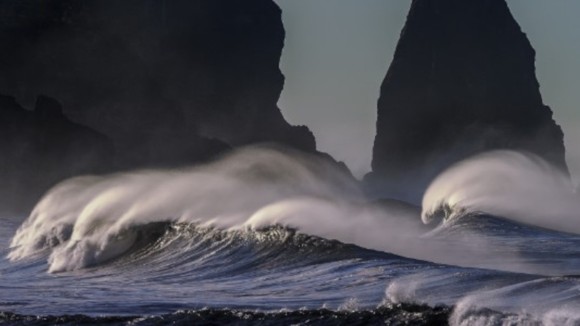 Asunción Baquerizo is Full Professor at the University of Granada where she does research in the Environmental Fluid Dynamics Group. Her interests are focused on coastal hydro-morphodynamics and risk and reliability in coastal and maritime engineering. Prof Baquerizo has been an Editorial Board Member for Scientific Reports since 2021.
Asunción Baquerizo is Full Professor at the University of Granada where she does research in the Environmental Fluid Dynamics Group. Her interests are focused on coastal hydro-morphodynamics and risk and reliability in coastal and maritime engineering. Prof Baquerizo has been an Editorial Board Member for Scientific Reports since 2021.
 Magaly Koch is a Research Associate Professor at Boston University and a remote sensing geologist with more than 30 years of experience in applied environmental research, including groundwater resources in drylands, land degradation problems, natural hazards, and human impact in environmental change. She is particularly interested in projects addressing global water scarcity and coastal zone geohazards through an interdisciplinary approach. Dr Magaly has been an Editorial Board Member for Scientific Reports since 2017.
Magaly Koch is a Research Associate Professor at Boston University and a remote sensing geologist with more than 30 years of experience in applied environmental research, including groundwater resources in drylands, land degradation problems, natural hazards, and human impact in environmental change. She is particularly interested in projects addressing global water scarcity and coastal zone geohazards through an interdisciplinary approach. Dr Magaly has been an Editorial Board Member for Scientific Reports since 2017.
 David Menier is Full Professor in Marine Sedimentology and Geology. He is an expert in Seismic Sequence Stratigraphy, in Marine Sedimentology and Geology (both clastic and carbonate). His research is focused on the quaternary sedimentary fill from detailed process-oriented studies to large-scale work to explore how coastal and shelf systems respond to changes in quaternary relative sea level and climate. Prof Menier has been an Editorial Board Member for Scientific Reports since 2023.
David Menier is Full Professor in Marine Sedimentology and Geology. He is an expert in Seismic Sequence Stratigraphy, in Marine Sedimentology and Geology (both clastic and carbonate). His research is focused on the quaternary sedimentary fill from detailed process-oriented studies to large-scale work to explore how coastal and shelf systems respond to changes in quaternary relative sea level and climate. Prof Menier has been an Editorial Board Member for Scientific Reports since 2023.
 Ana Cláudia Moreira Teodoro is Associate Professor with Habilitation at the Dep. Geosciences, Environment and Land Planning (DGAOT) in FCUP, and a senior researcher at the Earth Sciences Institute (ICT). Her research interests include remote sensing, image processing, GIS, coastal zones, and geological and environmental applications. Dr Teodoro has been an Editorial Board Member for Scientific Reports since 2022.
Ana Cláudia Moreira Teodoro is Associate Professor with Habilitation at the Dep. Geosciences, Environment and Land Planning (DGAOT) in FCUP, and a senior researcher at the Earth Sciences Institute (ICT). Her research interests include remote sensing, image processing, GIS, coastal zones, and geological and environmental applications. Dr Teodoro has been an Editorial Board Member for Scientific Reports since 2022.

